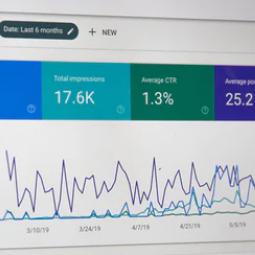Having a presence on social networks such as Facebook, Instagram, LinkedIn, TikTok or X (formerly known as Twitter) can be a great opportunity to engage new and existing supporters. However, it’s not essential that you’re on every social network. For many organisations wanting to use social media, it's best to start out where your audience likely is first. Check out this resource to learn more about social media demographics and where you should direct your attention.
Before getting started, though, it’s important to think about what you want to use it for.
- Take a look at how other organisations are using social media to a positive effect. If you are engaged as a supporter, it's probably working well, so have a good look at the social presence of organisations you are inspired by.
- If you are thinking of using social media for fundraising, take a look at this case study which describes how Hornsby Ku-ring-gai women's shelter ran a successful social media campaign.
Questions to ask before choosing a social network
Whether it’s Facebook , Instagram, X, LinkedIn, TikTok or any of the multitude of social networks, it’s important to answer these questions before committing to be present on there.
- Do we have a existing online presence?
- Does it fit within our online communication strategy?
- Do we have an active audience to engage with on this social network?
- Do we have the skills and knowledge to maintain this presence?
- How will we measure the value of this social network?
- By increasing our presence, are we legally and ethically protecting our brand and staff?
Developing a social media policy
While there are many benefits of being active on social media, there are some risks. When publishing information online, it is important that your organisation adheres to legal and ethical standards, and privacy laws.
Developing a policy for the use of social media by your staff is an important step in making sure you reduce the risks associated with being active on social media.
When communicating or publishing content online on your website or social media, it’s best to approach it as if you were talking to a client in a public space. It’s likely that there will be other people listening in (reading what you write).
Some things to keep in mind when publishing content (comments, posts, sharing) online:
- Consider all your posts are public.
- Expect that other people are ‘listening in’ (i.e. reading what you’re writing).
- Consider all your posts to be permanently online. Even if you delete a comment or post, there’s no way to stop people from taking a screenshot (e.g. a copy) of what you posted.
- The above points also relate to private communications!
- There is a risk that conversations can be taken out of context.
- Text communication can be misinterpreted so be clear, concise and unambiguous.
Equipped with an understanding of posting on social media, you can now develop a social media policy designed to keep your staff and organisation safe online and ensure that your communications with clients are well formulated.
Read next
Learn more about building a social media strategy.
Watch this 101 webinar on social media strategy.
Explore the social media training available to NFPs.





Status message
Thanks for rating this guide.